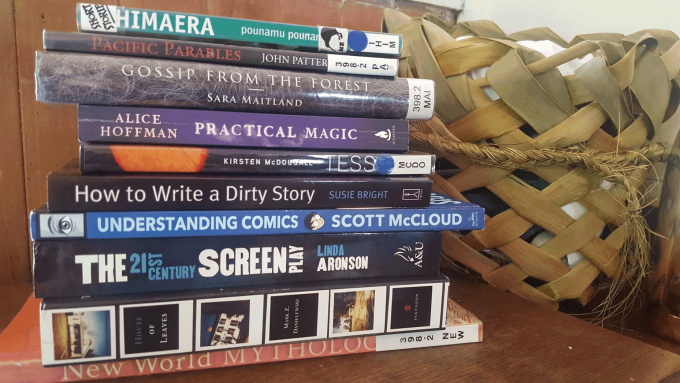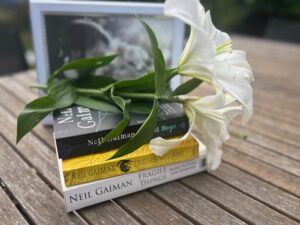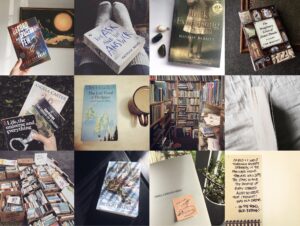When I was a child, my mother worried that I didn’t get out and spend enough time with friends, but who needs friends when you have books?
I’m joking! I’m joking. I have many wonderful friends.
But I also have many wonderful books.
I spent a lot of my childhood embedded in pages. Mum didn’t need to worry; the books were taking very good care of me, leading me on all kinds of adventures through this world and countless others.
We come from a long line of avid readers, so the whole bookworm thing wasn’t really a surprise. However, my choice in books was a puzzle my mother could never solve. Our extensive, extended family library was mostly composed of science fiction and fantasy, and while those are genres I adore, it’s horror that really captured me.
It still does.
I love that breathless sensation you get when you think something bad is going to happen. The way the skin at the back of your neck tingles and your shoulders shrug into your ears as if you can save yourself – save the characters in the book – with that movement. The way your feet lift off the floor, subconsciously tucking underneath you because who knows what’s hiding in that space beneath your seat. As if these little movements will protect you from killer or monster, from the unknown, the unknowable.
The way that even after you’ve finished the book you might hear something, and it triggers that gasp, that inhalation, that rush of adrenaline you need to get the hell out of there and somewhere safe.
Oh yeah, I love horror.
So, it’s no surprise that I love to write things that creep people out. The vast majority of my short fiction has elements of horror woven in. Which brings me to Butcherbird because it was the first time I set out to do this in a longer format.
You see, I’d been writing a lot of romance and the need to creep someone out was overwhelming, an itch that needed to be scratched; I needed horror. Not the B grade slasher film type (not that there is anything wrong with that. I love a good B grade slasher). I’m more into the subtle chills, the rising levels of discomfort and fear than I am blood and gore. I want the creepiness that lingers, the one that’s kind of familiar and could be waiting for you around the next corner, in the next person you meet. The one that follows you home (the creepiness, not the person, though that’s creepy too).
‘I want the creepiness that lingers, the one that’s kind of familiar and could be waiting for you around the next corner, in the next person you meet.’
I had this idea, and it hit me in the way the best ideas do, which is to say while I wasn’t looking for it at all. (I was actually playing Minecraft with the kids. Seriously, ideas can come from anywhere.) I was walking through a wheat field, water up to my knees, and it took me back to all the games we’d played in the rushes of the swamp on my grandparents’ farm. Birds swooping overhead, the sun blocked out suddenly by clouds, the drop in temperature that follows.
Once I’d scrawled down that initial flash of imagery, I set to work expanding this idea for a book and decided to fill it with all the things I love, and to set it on a fictional version of my grandparents’ farm, the very same place I spent so many years playing out stories with my cousins as a child.
And I couldn’t bring them to life – this book is not those stories, it’s a thing of its own – but all my memories of the farm, all my love of tales about family and secrets, of rural New Zealand and that slow-build fear that tickles the back of the throat are in this book.
These things aren’t perfectly honed yet, but they’re getting there with the help of my mentor, Whiti Hereaka. She’s making me think harder about all the elements I put in from the smallest reference to a book or object up to much broader things such as character motivations. I’ve spent these past weeks researching and reading, and all this background work means I’m coming back to my book and finding new ways to breathe life into the story, to add touches to dialogue and setting, to ramp up the world building and make the whole thing shine more.
‘I’m coming back to my book and finding new ways to breathe life into the story.’
It’s been really enriching to be forced to sink into research, to be directed towards specific texts to grow from and to pick my own as well, and a real challenge being told not to work on the book itself for weeks. My fingers were itchy for the craft by the time I was allowed back to writing.
I’d been slacking a bit on my reading goals, and this has all been excellent incentive to drown myself in books again.
This bookworm has taken her reading game to a new level.





